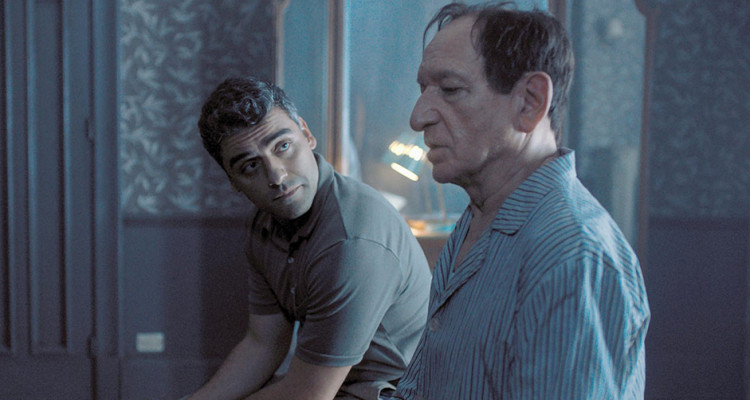Recent years have revealed the distressing fact that fascist ideologies are less dead and buried than once hoped, making it a fitting time for “Operation Finale,” a film directly concerning an attempt to symbolically turn the page from fascist atrocities, in the form of Israel’s 1960 abduction of Adolf Eichmann (Ben Kingsley) from his incognito second life in Argentina.
Eichmann was the most prominent Nazi to escape capture at the end of the war, neither taking his life like Hitler nor facing trial at Nuremberg. “Operation Finale” begins in the German émigré community of Argentina, where a young girl (Haley Lu Richardson) of Jewish descent finds herself dating Klaus Eichmann (Joe Alwyn), whose story of being raised by a mysterious uncle after his father who died in the war sounds suspicious enough to report to the Mossad and whose connections with rising fascists in Argentina make his ideology more than theoretical for local Jews. By 1960, the world generally, and the Mossad specifically, had mostly moved on to more pressing matters, but when presented with the opportunity to bring Eichmann before a court of law, the Israelis decide they must act.
The film is essentially divided into two parts; the first consists of assembling the team, planning the abduction, and the act itself. While the actors and director Chris Weitz are mostly good enough to make it work, this section suffers from an over-reliance on film clichés, especially in characterization. While he’s not the ostensible team leader, the protagonist is Peter Malkin (Oscar Issac), depicted as a dashing smart aleck who can’t be bothered to read the prep notes and must redeem himself from past failures (sound familiar?). The team’s doctor Hanna (Melanie Laurent) is given little personality besides a lingering sexual tension with Malkin. Despite all the usual tricks of well-made Hollywood fare, the abduction itself is shabby material for an action thriller – waiting for an old man to get off a bus before grabbing him on a dark rural road. Once the kidnapping has taken place, the more interesting moral questions come into play when the Israelis learn they must obtain Eichmann’s signed consent to get him on a plane out of the country.
After deciding that interrogation won’t work with such a man, obtaining the signature falls to Malkin, the only person in favor of relating with and trying to persuade Eichmann. Thus, the second and more compelling part of the film is a two-hander, simply Issac and Kingsley verbally sparring in a room, neither with a clear advantage. Kingsley’s Eichmann is unassuming at first, yet beneath the surface lies a monstrous arrogance and a contempt for the story of the Third Reich as told at Nuremberg; he burns to tell his side of the story and seems grateful for the chance to finally discuss it openly. The other Israelis have a palpable fear of speaking with Eichmann, lending a Hannibal Lecter tone to the proceedings, especially when Eichmann persuades Malkin to reveal his personal losses from the war, namely his beloved sister.
While some of the genre elements of “Operation Finale” are overly familiar, the film still succeeds due to the strength of the cast, especially Kinsgley and Issac, and its exploration of the moral complexity of bringing war crimes before a court of law. “Operation Finale” deserves credit for raising these thorny issues, even if ultimately the film (understandably) doesn’t have much new to say about the Holocaust. The film works best when at its simplest — two brilliant actors sparring with each other, Kingsley attempting to justify the horrific, Issac attempting to stay human and just while grappling with the embodiment of the Third Reich’s unfathomable legacy. [B-]

